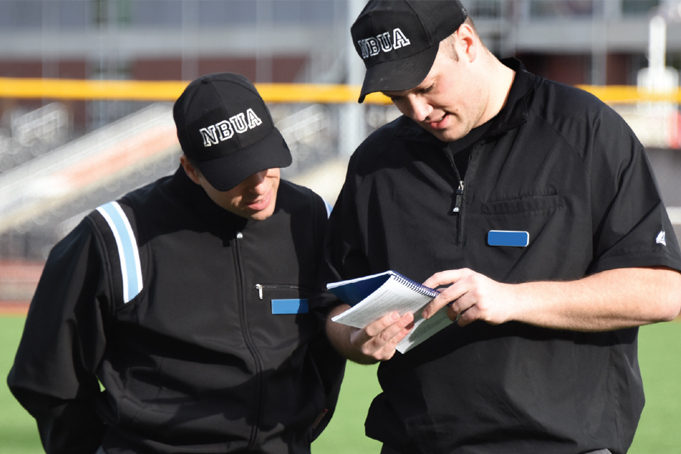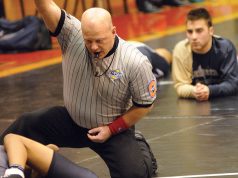Ask anyone who has “made it” in officiating about the people who have helped them along the way and they will without a doubt have a list of those who have influenced them. Being a good mentor is a great way to give back to the game, but it’s not for everyone. So what does it take to succeed at this challenging task?
Adaptability
Times have officially changed. Technology has become an important educational tool in all sports at all levels. Whether it’s using an app in your pregame, setting up an online study group or clipping and sharing game video, mentors have the ability to change with the times. They look for ways to incorporate technology and use it to their advantage. As games change, so do rules, mechanics and philosophies that go along with them. Mentors stay on top of those changes (and at times even influence the change). My own mentor always says, “If you aren’t keeping up, you’ll constantly be catching up.”
Approachability
A mentee has to feel comfortable talking to his or her mentor. A mentoring relationship is not just about the business, it’s personal. Mentors build trust early on in order to establish confidence in the relationship. They know that they need to initiate conversation that makes a potential mentee feel comfortable. Sometimes it’s as simple as recognizing and reaching out to officials who have recently been added to a league they work to say, “Congratulations,” or, “I’m here for you!”
Availability
Mentors pick up their phones and return text messages and emails. They may not always have the time to talk the moment they are contacted, but they always make time sooner rather than later. It’s important for those they mentor not to feel like a nuisance. Mentors make the effort to foster the relationship.
Communication
Mentors know how to manage the uncomfortable conversations that will inevitably take place. They may need to tell an official to lose weight or that they messed up a rule. Mentors handle those situations with a tough love approach. They are honest, fair and always keep the best interest of the ones they mentor at the forefront of their interactions with them.
Character
Mentors are good people. They carry themselves in a way that makes others excited to work with them. They tend to be like O negative blood, which works well with everyone. They do not engage in gossip. Mentors have a way of putting the best face on even the toughest situations.
Consistency
The best mentors are “do as I do” kind of people. They practice what they preach and believe in what they are doing. Their actions are a direct reflection of the lessons they teach. If a mentor tells a mentee to update his or her availability daily, the mentor is constantly making sure his or her own is up to date. If a mentor tells the mentee to lose 10 pounds, he or she has worked hard to maintain his or her own physique.
Credibility
Mentors are able to help others achieve their goals because they have experienced successes of their own. They’ve put in the time to master their craft and have somewhat of a resume to show for it. That doesn’t mean that mentors have to be at the end of their careers. However, the more games, tournaments and experiences they have, the more knowledge they have to pass down.
Humility
Former NFL coach Tony Dungy said it so eloquently in his book, The Mentor Leader. Dungy wrote, “If you do it right — if you really mentor others — more often than not, people will notice what a remarkably talented team, staff or child you have rather than what a great coach, employer or parent you are.” Mentors aren’t in it for the glory. They don’t make it about themselves. They find deep satisfaction in helping others succeed.
Positivity
A true mentor makes a positive impact in the lives of those they mentor. They have an uplifting attitude. When mentees are dealing with tough situations, a mentor puts a positive spin on it rather than engage in talk that brings themselves or others down. A mentor’s job is to help develop the next generation — of great officials as well as great mentors, too. Mentors know they may very well end up working a game or two with their mentee. If they have helped their mentee and given them keys for success, they know that their game is going to go a lot more smoothly. Their example keeps the game on a positive trajectory and ultimately creates the mentors of tomorrow. Are you up to the challenge?
What's Your Call? Leave a Comment:
Note: This article is archival in nature. Rules, interpretations, mechanics, philosophies and other information may or may not be correct for the current year.
This article is the copyright of ©Referee Enterprises, Inc., and may not be republished in whole or in part online, in print or in any capacity without expressed written permission from Referee. The article is made available for educational use by individuals.


















